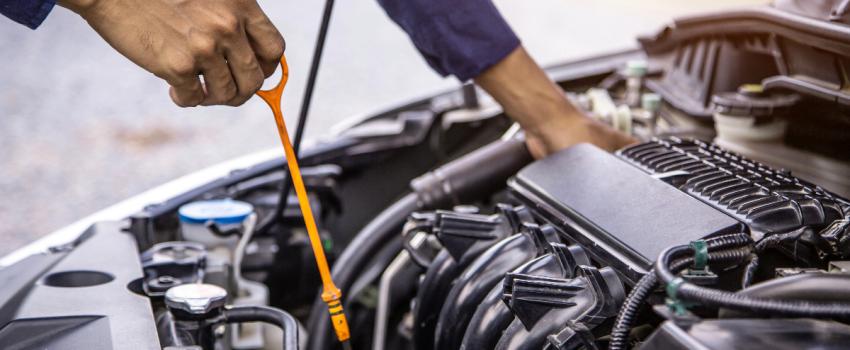
Oil Level: Overfill vs. Underfill
Engine oil plays a crucial role in the proper functioning of your vehicle's engine. Overfilling or underfilling the engine oil can have negative consequences on your engine's performance and longevity. Here's what can happen in each case:
Overfilling Engine Oil:
Foaming: Overfilling can cause the crankshaft to dip into the oil, creating air bubbles and foaming. This can reduce the oil's ability to lubricate effectively, potentially leading to increased engine wear.
Reduced Efficiency: Extra oil can create drag and resistance within the engine, reducing fuel efficiency and overall performance.
Catalytic Converter Damage: In some cases, excess oil can be drawn into the exhaust system, potentially damaging the catalytic converter and increasing emissions.
To avoid overfilling, always check your vehicle's owner's manual for the correct oil capacity and use a proper measuring device when adding oil.
Underfilling Engine Oil:
Running your engine with too little oil is also problematic:
Inadequate Lubrication: Engine oil is crucial for
lubricating moving parts within the engine. Insufficient oil can lead to
increased friction, heat, and wear on engine components.
Overheating: Oil also helps dissipate heat generated by the
engine. Low oil levels can result in overheating and engine damage.
Increased Fuel Consumption: An engine that lacks proper
lubrication may need to work harder, leading to decreased fuel efficiency.
Reduced Longevity: Continuous operation with low oil levels
can lead to premature engine wear and potentially catastrophic failures.
To prevent underfilling, regularly check your oil level
using the dipstick and keep it within the recommended range specified in your
owner's manual.
Maintaining the correct engine oil level is essential for the health and performance of your vehicle. Regular oil changes and proper oil level maintenance can help ensure your engine operates efficiently and has a longer lifespan. If you suspect you've overfilled or underfilled your engine oil, it's advisable to correct the level as soon as possible to prevent potential damage. If you're unsure about the correct oil level or have concerns about your engine's health, consult with a qualified mechanic or refer to your vehicle's owner's manual for guidance.
Comments
Leave a comment
Your name and email address will not be stored in the browser and your email will not be published.